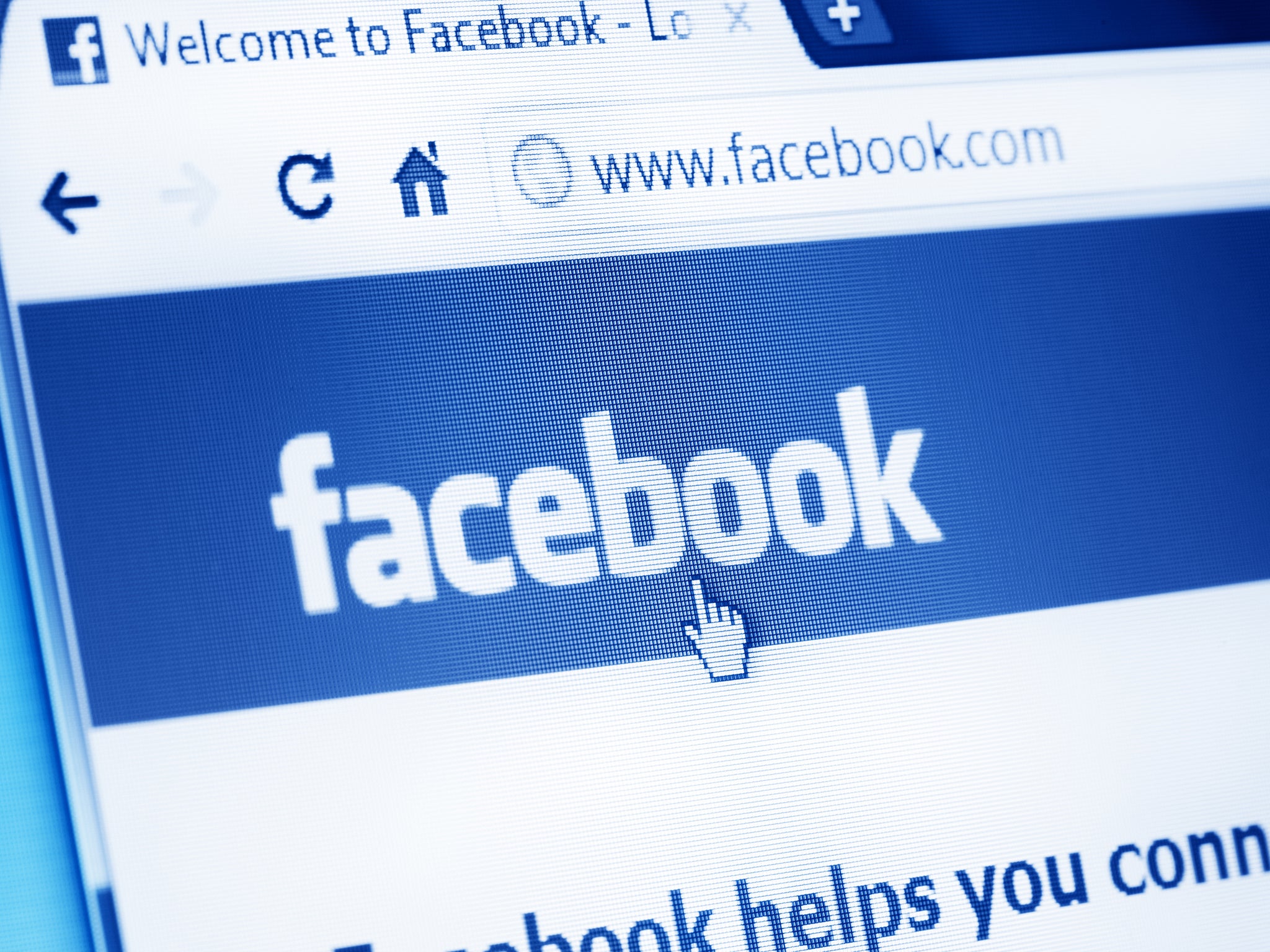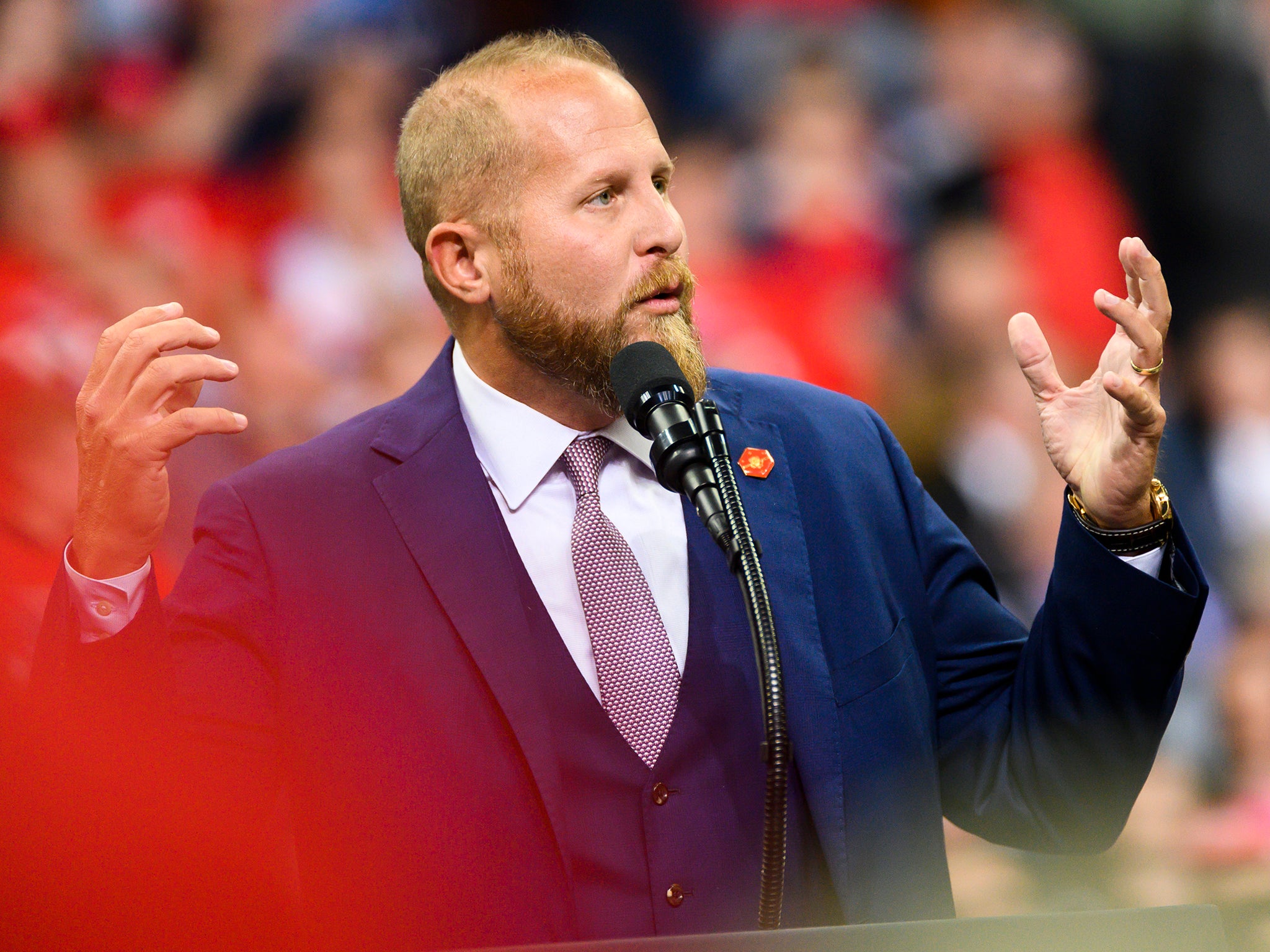Trump campaign lashes out at Facebook over potential political ad crackdown
Re-election drive spends more than £600,000 on countering impeachment inquiry in just a week

Your support helps us to tell the story
From reproductive rights to climate change to Big Tech, The Independent is on the ground when the story is developing. Whether it's investigating the financials of Elon Musk's pro-Trump PAC or producing our latest documentary, 'The A Word', which shines a light on the American women fighting for reproductive rights, we know how important it is to parse out the facts from the messaging.
At such a critical moment in US history, we need reporters on the ground. Your donation allows us to keep sending journalists to speak to both sides of the story.
The Independent is trusted by Americans across the entire political spectrum. And unlike many other quality news outlets, we choose not to lock Americans out of our reporting and analysis with paywalls. We believe quality journalism should be available to everyone, paid for by those who can afford it.
Your support makes all the difference.The Trump campaign has lashed out at Facebook after company executives said they were considering changes to rules around political ads that could affect the campaign's ability to target its supporters on the platform.
The outcry came as Donald Trump's re-election team undertook a massive spending blitz on Facebook aimed at countering the House's impeachment inquiry. Mr Trump's page alone promoted more than $830,000 (£641,000) worth of ads in the seven days ending on 17 November, according to Facebook's ad archive.
Facebook's microtargeting technologies allow advertisers to home in on specific groups of users and deliver messaging tailored to them – a strategy the Trump campaign has used prolifically.
Mr Trump's campaign director Brad Parscale has noted that the president's team has tested thousands of variations of political ads in an attempt to reach small groups of voters, such as "15 people in the Florida Panhandle that I would never buy a TV commercial for".
The prospect that his re-election campaign could lose access to some of those tools appears to be vexing his team. The campaign's official Twitter account used siren emojis to sound the alarm, tagging Facebook's account on Twitter as it warned that the company "wants to take important tools away from us for 2020".
The disapproval came in response to revelations that Facebook executives were considering broad changes to advertising rules, even as they have declined to follow Twitter's lead in washing their hands of the issue by banning ads from political candidates altogether.
Facebook and Twitter did not immediately respond to a request for comment. Nor did Google, where executives also are considering changes in the rules for political ads on YouTube, a video-streaming site where Trump also has attacked Democrats during the impeachment debate.
Facebook has faced a torrent of criticism this autumn after affirming that it would not fact-check speech by politicians, arguing that it should not serve as the arbiter of truth online.
Sparking that controversy was one of the Trump campaign's own ads, which assailed former vice president Joe Biden with false claims about his dealings in Ukraine. Mr Biden, who is seeking the Democratic nomination for president, requested that Facebook remove the ad – and the social media giant declined.
In the weeks since, Mr Trump has continued to make false claims in Facebook ads, including the assertion that the investigation by special counsel Robert Mueller resulted in a "total exoneration", which it did not.
Many of the campaign's most recent posts take aim at Democrat representative Adam Schiff, the chairman of the House Intelligence Committee, and house speaker Nancy Pelosi, pressing users to contribute to Mr Trump's campaign to signal their opposition to the "Fake Impeachment Trials" and the "Impeachment Hoax".
Meanwhile, Facebook has expressed an openness to rethinking some of its policies, which have drawn sharp rebuke from regulators in Washington and even the company's own employees, who asked Facebook chief executive Mark Zuckerberg in an open letter to restrict targeting for political ads. Mr Zuckerberg recently acknowledged the tech giant is "continuing to look at how it might make sense to refine it in the future".

Among the changes under consideration, according to an individual familiar with Facebook's deliberations who was not authorised to speak publicly, is limiting microtargeting.
On Monday, Facebook's vice president of global marketing solutions, Carolyn Everson, said targeting technologies would not be affected, promising at the 2019 Code Media conference, "We are not talking about changing the targeting".
Then, she walked those comments back, telling Axios that a range of modifications were still possible.
That refusal to affirm that microtargeting was safe from policy changes prompted the Trump team's outcry. The campaign's digital director, Gary Coby, issued a series of tweets claiming that reining in microtargeting would suppress voter turnout and stifle speech.
"This would unevenly hurt the little guy, smaller voices, & issues the public is not aware of OR news is NOT covering," he wrote.
Starting with the 2016 election, Trump has used Facebook's promotion tools to bypass mainstream gatekeepers and speak directly to Americans, frequently spreading falsehoods to boost his case. Facebook does not reveal which users were targeted by any given ad, disclosing only a rough demographic profile of those who ultimately viewed the messaging.
Many experts have raised concerns about microtargeting, arguing that broader appeals force politicians to speak across demographic groups and are more likely to gain the attention of fact-checkers.
The more hyper-targeted an ad, said Shannon McGregor, an assistant professor of communications at the University of Utah, the "more likely the appeals are to be inflammatory".
The warning from the Trump campaign illustrates the partisan fault lines of the debate over digital advertising, with national Democrats clamouring for the platforms to do more to weed out misinformation.
Democratic candidate Elizabeth Warren, for example, ran ads on Facebook in October accusing the company of giving "Donald Trump free rein to lie on his platform - and then to pay Facebook gobs of money to push out their lies to American voters".
This week's intervention by the Trump campaign intensifies the political stakes for Facebook as it weighs policy tweaks less than a year from the 2020 election.
Trump's top campaign aides similarly lashed out at Twitter after the company announced it would ban advertisements from government officials, political candidates and their political-action committee allies. Mr Parscale called the move a "dumb decision" and described the policy as "another attempt to silence conservatives" online.
Trump and his allies regularly have alleged that social-media giants are biased against the president and other Republicans, though they have never presented systematic evidence of such censorship - and the tech companies strongly deny it.
The Washington Post
Join our commenting forum
Join thought-provoking conversations, follow other Independent readers and see their replies
Comments